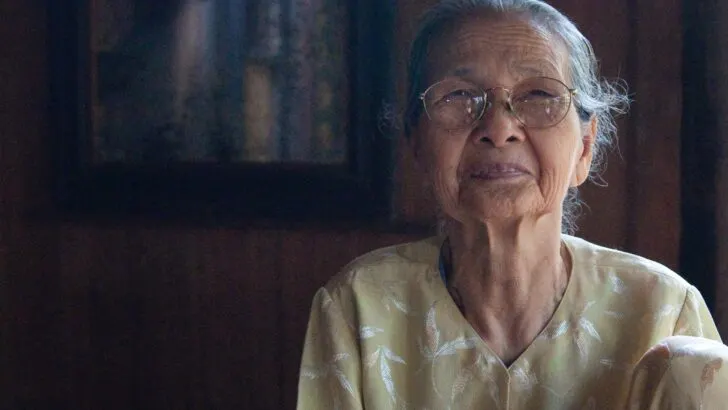When it comes to finding help for senior citizens, it can be difficult to find the right answers. Although the options can be confusing and overwhelming, there is help for senior citizens out there. Whether you’re in need of food assistance, healthcare, or social support, read on and find out how to find help near you.
Food Assistance
For low-income seniors, getting enough to eat can be a challenge. Like all low income individuals and families, senior citizens are eligible for SNAP (aka. food stamps), and can access food pantries and soup kitchens in their local communities. However, they are also eligible to receive other types of assistance to make sure they are meeting all their nutritional needs.
A government program that supplies food assistance to seniors is called Commodity Supplemental Food Program (CSFP). CSFP provides special boxes of food for low-income senior citizens each month. Often, these boxes can be picked up at a food pantry or community agency. However, sometimes they are delivered to seniors’ homes. CSFP is administered by each U.S. state and Indian Tribal Organization, so in order to find out if you’re eligible, visit your state’s CSFP web page. You will find your state’s page easily by Google Searching “CSFP [your state]”.
The Seniors Farmers’ Market Nutrition Program (SFMNP), established by the U.S. Department of Agriculture, is another government food program for senior citizens. SFMNP provides seniors with assistance purchasing locally grown fruits and vegetables. To find out if you’re eligible, contact your state’s office of Food and Nutrition Service directly.
In addition to government programs, many nonprofit and community organizations offer food help for senior citizens. Meals on Wheels is a popular program for senior citizens with health challenges that prevent them from shopping for food and preparing meals.

Healthcare Help
As we get older, one of the most burdensome expenses we will encounter is healthcare. While you may already be familiar with Medicare, the U.S. federal government healthcare program for senior citizens, you may not know that there are other government sponsored programs to help cover healthcare costs.
While Medicare provides healthcare options that are lower in cost than what’s out there on the marketplace, it is still a significant financial burden for many senior citizens. That’s where Social Security Medicare Savings Programs come in. This article (under the heading: “what if I can’t afford Medicare?”) details the qualifications for the government’s Medicare Savings Programs. Not sure if you qualify? Contact your state’s Medicare office to discuss your healthcare needs.
Unfortunately, Medicare does not cover the cost of long-term care, like nursing homes and assisted living facilities. There is, however, help for senior citizens who need long-term care. When seniors are unable to afford the cost of long-term care, they may be able to enroll in Medicaid. Visit Medicaid.gov to find out if you’re eligible.
Some senior citizens are not eligible for Medicare. This could be because they did not work at all or enough throughout their lives (eligibility is based on having contributed to the system through Medicare taxes), or because of unauthorized immigration status. If this is the case for you, there are some ways to obtain free or low-cost medical care.
Meeting Social Needs
Our need for social support doesn’t go away when we get older! In fact, it’s as important as ever to stay connected with others. Sometimes it becomes more difficult to stay connected as our spouses and friends begin to pass away or enter long-term care facilities. However, there are many resources for seniors who want to be part of a community and need social support.
Most cities and towns in the United States have a senior center where senior citizens can go to enjoy each other’s company, play games, attend classes, and share a meal. Senior centers have largely been closed since the start of the COVID-19 pandemic, but are slowly beginning to open up again.
The best way to find a senior center near you is to google search “senior center near me”, but there are a few other surefire ways to find social activities for seniors:
- The YMCA is also a great resource, and most YMCA locations have programming for seniors.
- Check with your local library. Most public libraries have special reading groups or other activities for senior citizens.
- If there is a shopping mall in your area, find out if there’s a walking group for seniors that meets there. Sometimes groups of seniors meet at shopping malls to walk together, since they are sheltered from bad weather and extreme temperatures.
- Become an Americorps volunteer. Americorps is a national service organization that has a special program for seniors. You will even receive a small stipend for your service.
- Join Stitch. Stitch is an online social networking website designed for people over the age of 50.
- Consider dating! There are several free online dating services specifically for senior citizens, including SilverSingles and OurTime.
- Find a friendly visiting program. Find out if there is a program in your area for homebound seniors. Many cities and municipalities provide friendly visitors to help keep homebound seniors company. Here is an example of a friendly visitor program in New York City, but you can find one near you by Google searching “friendly visitor program near me”.

More Resources
If you didn’t find what you’re looking for here, there are many organizations that exist to provide help for senior citizens.
Elder Care Locator: The U.S. Administration on Aging created this tool to help connect seniors with the services they need.
Benefits CheckUp: The National Council on Aging provides this tool to help senior citizens find benefits programs in their area.
Senior Helpline and Elder Care Hotline: By calling 855-241-1699, you will be connected with a senior care advisor who can answer your questions about finding and paying for senior housing and long-term care. Calling the hotline is 100% free.
AARP: The American Association of Retired Persons is a great resource for anyone looking for information relevant to senior living and help for senior citizens. While this organization is not specifically targeted to low income senior citizens, they have some resources specifically for low income seniors.
We hope these resources are helpful as you search for help for senior citizens!

